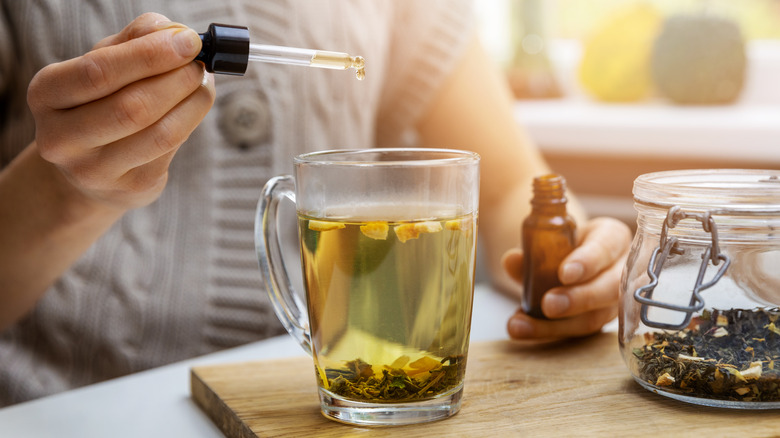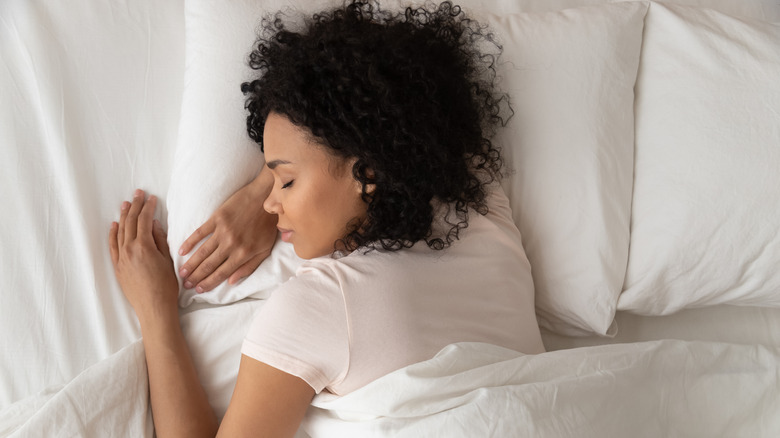How CBD Can Help You Get A Good Night's Sleep
Tinctures, edibles, vaporizing, oh my! These are just some of the ways you can consume cannabidiol, or more popularly known as CBD, THC's close cousin and partner in crime.
According to CNET, CBD rose to popularity after the United States passed the U.S. Farm Bill in 2018, legalizing industrial hemp (derived from cannabis sativa plants) to be distributed all over the country. Since then, the introduction of CBD into mainstream culture has been explosive. From local shops specializing in CBD products to infused beverages and CBD-designed skincare brands, people are catching onto the plethora of benefits CBD has to offer.
That being said, it's important to do research to see if CBD is right for you, though the substance is pretty safe according to Marcel Bonn-Miller, an adjunct assistant professor at the University of Pennsylvania's Perelman School of Medicine (via The New York Times). Perhaps CBD is on the rise for its appeal to those with chronic pain, autoimmune diseases, migraines, and depression. The list can go on, but for those who are also struggling with one thing we all do, sleep, you may just want to trade in your melatonin for CBD in the form of a joint or even a pill. Here's how CBD can help you catch some zzz's.
Studies suggest that CBD can help insomnia
There are countless beneficial claims that CBD has been said and marketed to provide, especially relief for anxiety, depression, and post-traumatic stress disorder, according to The New York Times. It's helpful to note, however, that the publication's article suggests that more research on the popular chemical compound needs to be done, since the majority of research and testing has been on animals.
That being said, that doesn't mean that you should swear off CBD, especially if you have trouble sleeping and staying asleep at night. In addition to the physical and emotional benefits CBD and its consumers claim to confirm, whichever method you choose to ingest it, studies show that CBD helps with insomnia. Harvard Health Publishing, via Harvard Medical School, published a blog in 2021 citing evidence from both animal studies and self-reports or research in humans that CBD helps insomniacs, aiding with both falling asleep and staying asleep.
Here's how to start using CBD for sleep
A common question when getting introduced to CBD is, "What's the difference between CBD versus THC?" Though CBD and THC are more alike than they are different, the psychoactive effects don't operate the same atomically, leaving you high with THC and a more relaxed, less-anxiety ridden effect with CBD. So if you're more #TeamCBD and you're interested in how it can improve your quality of life, preferably sleep, here's some things you should know before implementing it into your lifestyle routine.
Healthline reports that to use CBD for sleep, some of the most preferred methods are edibles (think gummies or chocolate), oils or tinctures, pills, and vape concentrates. Vaping, even though the publication outlines the potential risks, goes into the bloodstream the quickest. Keep in mind that dosages of CBD can vary, which your weight and overall body chemistry can impact.
Keep in mind that though professionals can vet CBD for its safety, some possible side effects can be drowsiness and a potential change in appetite and weight. We recommend trying it for yourself and seeing if it works for you since everyone's different.


